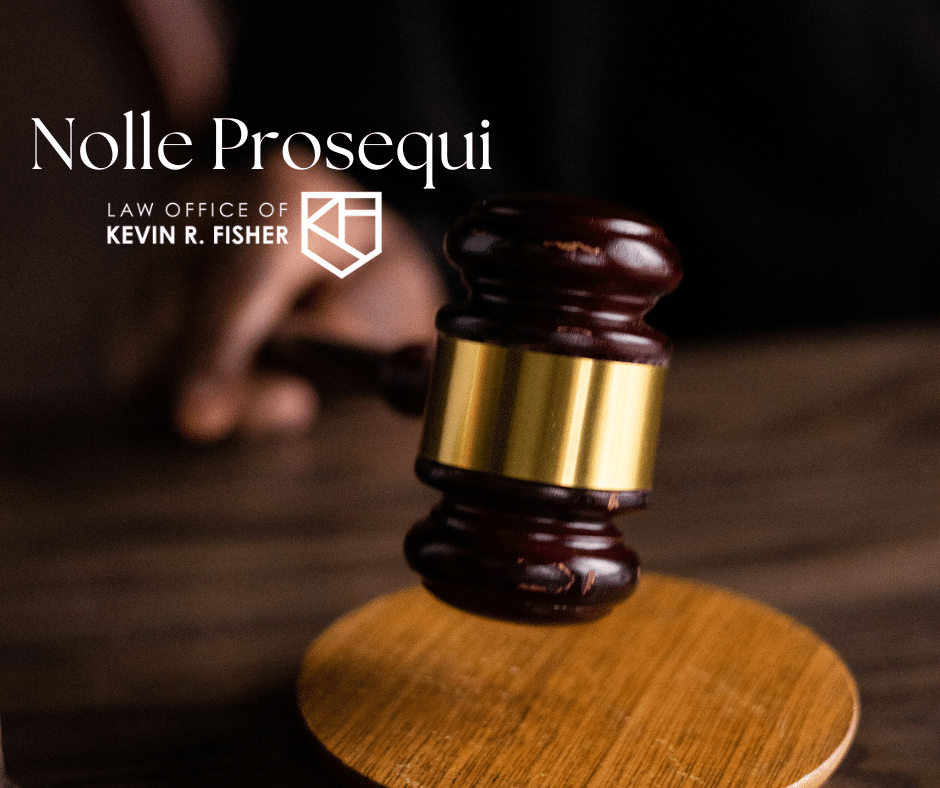Criminal cases can end in many ways, whether a verdict from a jury, a plea, or an acquittal. However, a criminal case may also end with the prosecution’s entry of a nolle prosequi. Keep reading to learn more about what happens when a nolle prosequi is entered and its effect on criminal cases, criminal records, and more.
What is a Nolle Prosequi?
Nolle prosequi is a Latin phrase that translates to “not to wish to prosecute.” Nolle prosequi is usually abbreviated as “nolle prosse” or “no pross.” In court, you may hear lawyers or judges refer to nolle prosequi as “nol prossed” for short.
Nolle prosequi is a legal entry or notice that the prosecutor has decided to abandon or dismiss the prosecution. The prosecutor may choose to enter a nolle prosequi for all or some of the charges. Nolle prosequi can apply in a criminal or civil case. In a criminal case, a nolle prosequi means the prosecutor abandoned the prosecution of the defendant. In a civil case, a nolle prosequi means the plaintiff abandoned the lawsuit.
Effects of Nolle Prosequi?
The entry of a nolle prosequi results in the prosecution being postponed until a later date. This is because the prosecutor has 6 months after entering a nolle prosequi to bring formal charges for the same offense. After the 6 months have expired, the prosecution ends. The choice to prosecute for the same offense later is left in the hands of the prosecutor.
When Can the Prosecutor Enter a Nolle Prosequi?
The prosecutor can enter a nolle prosequi any time after criminal charges are brought to the court and before the case has been brought in front of the jury, with the consent of the court. This means that the court can choose not to accept a nolle prosequi.
Once the case has been brought to the jury, a nolle prosequi cannot be entered by the prosecutor without the consent of the defendant. The consent of the defendant to a nolle prosequi is not required if the case has not gone to the jury.

What is the Difference Between a Nolle Prosequi and an Acquittal?
A nolle prosequi is not an acquittal, meaning you can be prosecuted or reindicted for the same crime in the future. A nolle prosequi also does not determine the defendant’s innocence or guilt. Further, it does not stop future legal proceedings for the same offense for at least 6 months, so the criminal defendant is not protected under the principle of double jeopardy.
To make sure the prosecutor does not bring charges for the same crime, the case will need to be dismissed on an involuntary basis by the court “with prejudice.” An involuntary dismissal with prejudice keeps the prosecutor from refiling charges for the same crime. As a result, your criminal defense attorney may ask for a dismissal “with prejudice” rather than agreeing to a nolle prosequi.
Another difference between a nolle prosequi and an acquittal is that a nolle prosequi is a dismissal brought to the court by the prosecutor, while an acquittal happens when a judge or jury finds the defendant innocent.
Why did the Prosecutor Enter a Nolle Prosequi?
There are many reasons a prosecutor may choose to abandon charges against a criminal defendant, including but not limited to:
- Lack of evidence;
- Lack of witnesses;
- Difficulty meeting their legal burden of proof;
- New evidence that work’s to the prosecution’s disadvantage; or
- The defendant completes pre-trial programming that addresses the charges, such as a pre-trial diversion program.
Once charges are brought against you, hiring a defense attorney as soon as possible helps ensure you are fairly prosecuted. Further, having a criminal defense attorney advocating on your behalf and negotiating with the prosecutor may convince the prosecutor to enter a nolle prosequi or may result in the court entering an involuntary dismissal with prejudice.
Do I Have a Criminal Record if the Prosecutor Entered a Nolle Prosequi?
After a prosecutor enters a nolle prosequi, many criminal defendants ask whether they have a criminal record. Nolle prosequi is part of the public record and may appear on a background check when applying for jobs, housing, school, etc. However, a nolle prosequi on someone’s record usually does not prevent them from getting jobs, housing, getting into schools, or anything else that requires a background check. This is because the nolle prosequi means the prosecution abandoned or dismissed the charges. There was no conviction in the case, so the person was not found guilty.
In Georgia, to make sure a nolle prosequi does not show up on your criminal record, you will need to file with the courts to have your criminal record expunged. A criminal defense attorney can help you seal or expunge your criminal record.
Have Questions? Give Me a Call.
Resolving a criminal case is complicated and affects your future. I have decades of experience working with my clients to reach the best possible resolution of their cases, and I will advocate from the beginning to the end of your case to make sure you receive the best outcome. If you need a criminal defense attorney or have legal questions, give me a call today!

